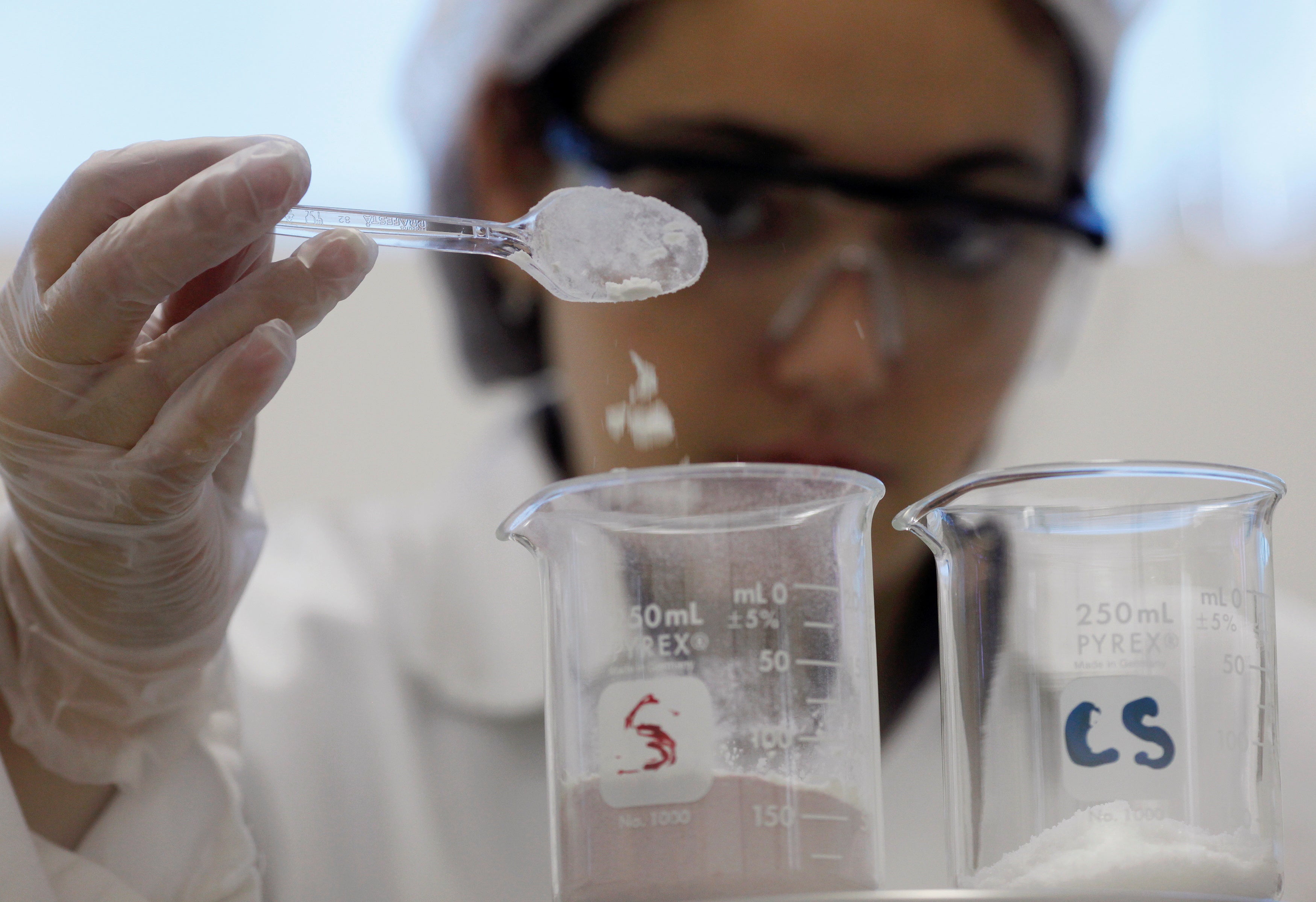Animal testing for cosmetics could return after Home Office decision, warn campaigners
UK’s ‘claims to have banned animal testing for cosmetics are now so compromised as to really be meaningless’, says activist

Your support helps us to tell the story
From reproductive rights to climate change to Big Tech, The Independent is on the ground when the story is developing. Whether it's investigating the financials of Elon Musk's pro-Trump PAC or producing our latest documentary, 'The A Word', which shines a light on the American women fighting for reproductive rights, we know how important it is to parse out the facts from the messaging.
At such a critical moment in US history, we need reporters on the ground. Your donation allows us to keep sending journalists to speak to both sides of the story.
The Independent is trusted by Americans across the entire political spectrum. And unlike many other quality news outlets, we choose not to lock Americans out of our reporting and analysis with paywalls. We believe quality journalism should be available to everyone, paid for by those who can afford it.
Your support makes all the difference.The Home Office has paved the way for a return to animal testing for chemicals used in purely cosmetic products, campaigners have warned, in a move they say would up-end more than two decades of government policy.
Officials this week revealed that UK rules on testing would be aligned with a decision by the European Chemicals Agency’s (ECHA) Board of Appeal, requiring certain ingredients to be trialled on animals before use by humans.
That ruling stated that Symrise, a major producer of flavours and fragrances based in Germany, should carry out animal tests on two substances used solely in cosmetics products to satisfy chemicals regulations.
This included homosalate, a chemical substance used exclusively in cosmetic and personal care products as an ultraviolet filter.
The original ECHA decision, dating from August 2020, said that restrictions on animal testing in Europe’s cosmetics laws do not prevent the need to comply with EU chemicals legislation.
In a letter from the Home Office to the animal charity, Cruelty Free International (CFI), seen by The Independent, the interim head of policy at the Animals in Science Regulation Unit said the UK had now “aligned its approach to the Board of Appeal of the European Chemicals Agency in the Symrise case”.
CFI said the decision by the government meant that even for ingredients only used in cosmetics, animal testing may now be required in the UK.
Kerry Postlewhite, director of public affairs at CFI, told The Independent that ministers should either enforce a total ban on animal testing for cosmetics, or “come clean with UK consumers … and tell them that its claims to have banned animal testing for cosmetics are now so compromised as to really be meaningless”.
Dr Katy Taylor, CFI’s director of science and regulatory affairs, said the decision “blows a hole in the UK’s longstanding leadership of no animal testing for cosmetics and makes a mockery of the country’s quest to be at the cutting edge of research and innovation, relying once again on cruel and unjustifiable tests that date back over half a century”.
She added: “The government is saying that even ingredients used solely in cosmetics, and with a history of safe use, can be subjected to animal tests in the UK.
“These are not tests that cosmetics companies want or feel the need to do to ensure the safety of consumers or workers or of our environment.”
Symrise had argued against the ruling that it be required to test certain ingredients on animals.
Luke Pollard, the shadow environment secretary, said: “Labour will robustly oppose Tory plans to bring back testing of cosmetics on animals. It’s sick and wrong. If the Tories change the law to allow animal testing of cosmetics the next Labour government will ban it.”
In the letter sent to CFI last week, the Home Office said that the ban on animal testing for finished cosmetic products – as opposed to individual ingredients – remained in force.
“The principle of the 1997/98 policy, namely that testing of finished cosmetic products on animals for the registration and marketing of those products is not required and therefore not permitted, remains in force,” the letter stated.
But the letter, first obtained by The Guardian, added that the Home Office would “publicly clarify its position now with the formal publication of an updated policy and regulatory guidance on the regulation of animal testing”.
A Home Office spokesperson said: “There has been no change in our legislation and the ban on using animals for the testing of finished cosmetic products remains in force.
“Under UK regulations to protect the environment and the safety of workers, animal testing can be permitted, where required by UK regulators, on single or multiuse ingredients.
“However, such testing can only be conducted where there are no non-animal alternatives.”
Join our commenting forum
Join thought-provoking conversations, follow other Independent readers and see their replies
Comments